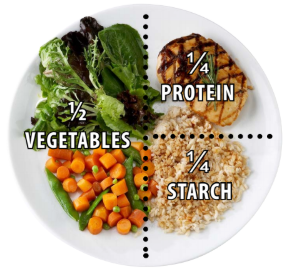 By Jared Dunham
By Jared Dunham
Recovery between workouts is crucial for improving your ability to perform in endurance sports. Proper recovery helps in many ways, some of which are:
- Allowing your muscles to rebuild and recover from a hard workout.
- Preventing over-training or burnout.
- Managing consistent weight and body composition.
There are many ways to receive the right amount of recovery between workouts, popular methods are: protein intake, stretching, foam rolling, and time spent away from the sport. While all of these are important factors to consider, one thing that can be overlooked or set as a lower priority is the amount and quality of sleep you’re receiving. Those restful night hours are crucial because it can directly affect how hard you perceive a workout is. “That means biomechanically there’s no reason sleep will lessen your physical capabilities, but you will fatigue faster on less sleep, making it feel tougher to work out to your maximum capacity,” (How sleep affects fitness and vice versa: Everyday Health). This being said, here are my recommendations for getting the proper amount of sleep needed to recover best.
Get the right number of hours. The recommended number of hours would be eight per night, however with a busy schedule this can be difficult. Something I find that helps is scheduling my less crucial tasks near bedtime, that way the task I skipped to get asleep on time isn’t a big deal anyway. To really soak up those hours, create a sleep routine where you arrive and depart from the best mattress at the same times every day. This will make getting to bed and waking up on time easier as your body acclimates to the schedule.
 Improve your digestive system. An unhealthy gut can lead to poor sleep and poor sleep can lead to an unhealthy gut, it’s a vicious cycle. In my experience, three major contributors to a problematic stomach are: lack of variety in diet, lack of fiber in diet, or a calorie deficit. If you’re eating the same things every day then diversifying the food groups your consuming will draw more nutrients from your diet, which can aid gut health. Fiber is also an important factor, though it can sometimes seem difficult to take enough in while dieting. The average recommended amount is 35 Grams per day which I’ve found to work fine with me. Two foods that are low calorie and packed with fiber are Spinach and Berries. On another note, natural fiber is leagues better than supplementing it out of a bottle. Lastly, a diet that has you eating too little calories will slow down your metabolism and hurt not only weight loss but also sleep. Going to bed a tad hungry is okay but trying to sleep while you clearly did not eat enough is going to make easy rest a distant dream.
Improve your digestive system. An unhealthy gut can lead to poor sleep and poor sleep can lead to an unhealthy gut, it’s a vicious cycle. In my experience, three major contributors to a problematic stomach are: lack of variety in diet, lack of fiber in diet, or a calorie deficit. If you’re eating the same things every day then diversifying the food groups your consuming will draw more nutrients from your diet, which can aid gut health. Fiber is also an important factor, though it can sometimes seem difficult to take enough in while dieting. The average recommended amount is 35 Grams per day which I’ve found to work fine with me. Two foods that are low calorie and packed with fiber are Spinach and Berries. On another note, natural fiber is leagues better than supplementing it out of a bottle. Lastly, a diet that has you eating too little calories will slow down your metabolism and hurt not only weight loss but also sleep. Going to bed a tad hungry is okay but trying to sleep while you clearly did not eat enough is going to make easy rest a distant dream.
Remove distractions before bed. Generally one of the rules for getting good sleep is to shut down electronics prior to hitting the hay, however I think we may need to be broader than that. We should stop focusing intently on one thing in that 30 minute window before bed. I say this because concentrating on a task and then attempting to sleep could leave you with ruminating thoughts that keep you awake. Good examples of tasks not to do would be: playing an intense video game, doing stressful paper work, or watching a horror movie.
Stretching or Foam Rolling. Two things that have aided me in the transition from wake to sleep is stretching or using a foam roller immediately before bed. While there aren’t certain stretches or areas of the body to roll that I recommend everyone, if you’re a cyclist then obviously to get the best recovery from a workout stretch and roll your lower body.
Without the proper recovery and sleep, it doesn’t matter how hard you workout you will not yield the results to meet your goals.
The post Better Sleep for Better Results appeared first on Team Athletic Mentors.
 Athletic Mentors
Athletic Mentors